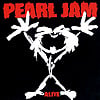a good road movie

ladygooddiva
Posts: 4,169
it is a movie about women situations in india ...i will watch it when i am back in germany
very intresting i think and still we women are on a fight worldwide
and this movie was shown at a international human rights conferenz
it is called shortcut to justice
http://de.youtube.com/watch?v=RpiajnTmrVw
very intresting i think and still we women are on a fight worldwide
and this movie was shown at a international human rights conferenz
it is called shortcut to justice
http://de.youtube.com/watch?v=RpiajnTmrVw
Post edited by Unknown User on
0
Comments
-
It looks interesting. Thanks for the recommendation."Information is not knowledge.
Knowledge is not wisdom.
Wisdom is not truth.
Truth is not beauty.
Beauty is not love.
Love is not music.
Music is the best."
~ FZ ~0 -
you re welcome ..yes that was my tought ..so i thought why not recommend it ...;)blacknapkins wrote:It looks interesting. Thanks for the recommendation.
and t is a therm that not everybody put eye on...0 -
documentary premiered at Toronto International Film Festival
***********
http://www.thestar.com/News/World/article/500506
India's first female officer had tough job
In the world of Indian policing, Kiran Bedi was the ultimate outcast.
As the country's first female police officer, she aggravated her critics by being successful at every turn, drawing publicity for her mounting accomplishments.
Just five-foot-three, she once faced a 3,000-strong, sword-wielding group of rioting Sikhs, alone with a wooden baton, after all her male colleagues ran away. She turned the mob back, but was she scared? "I was very focused," she said later, matter-of-factly.
Towing the prime minister's car or turning around Asia's largest prison, she wouldn't tolerate the elitist principles entrenched in that society. That's why her life and career were made into a documentary, Yes Madam, Sir, which premiered recently at the Toronto Film Festival. Shot over seven years by Australian filmmaker Megan Doneman, it shows the peaks and valleys of an extraordinary career.
"I was never, ever overawed by anybody in power," Bedi, 59, told the Star during her visit to the festival. "What mattered to me was (reaching) out to the disempowered."
Her unconventional outlook started at home. She was born in 1949, the second of four girls, to a couple who fervently believed in education. Dinner conversations were about how far their dreams could take them.
"We were an exceptional family in the whole city," she said. "We were almost an exceptional family in the whole country. My parents ... were 30, 40 years ahead of their time."
Bedi was the national and Asian tennis champion, then later earned undergraduate and master's degrees, a law degree and a Ph.D.
Hungry to contribute socially, she made waves in 1972 by qualifying for the police academy. Her early years of service were in the traffic division, where she made headlines clearing Delhi's legendary traffic chaos for the 1982 Asian Games. The message was clear when she had prime minister Indira Gandhi's illegally parked car towed.
From early in her career, she reached out to all sectors, rewarding honesty and co-operation, encouraging ideas and making swift decisions. Bedi excelled at identifying and addressing priorities.
The media loved her, incensing her critics who painted her as self-absorbed publicity-seeker.
Her most formidable challenge came as head of the notoriously corrupt Tihar Prison, Asia's largest, with 10,000 inmates, including 400 women, many with children.
Within months, the prison offered literacy, yoga and meditation classes. There was vocational training and school for children. Bedi began medical clinics, art and culture groups, sports initiatives and recognized national festivals.
Bedi's astonishing success – which led to prison reform around the world and her receiving Asia's equivalent to the Nobel Peace Prize – led to her downfall two years later, with accusations she had compromised security by allowing the media a peek inside.
Bedi made remarkable transformations with each posting, eventually landing at the United Nations as the civilian police adviser for peacekeeping operations. She found the bureaucracy frustratingly slow and left after two years.
Since retiring from policing last year, she's devoted herself full-time to two nongovernmental organizations she founded. This month, she launched two new websites, one for police officers to report corruption and ineffective leadership, the other for citizens to raise complaints and concerns about actions of police officers. She has a team in place to help examine and resolve issues.
She also spends as much time as possible with her daughter, granddaughter and father, now 89.
"I'm working much harder since I left the service," she said. "I feel there is so much more to do and I enjoy doing."0 -
thanx for that posting i didn not knew ..just found it ...0
Categories
- All Categories
- 149.1K Pearl Jam's Music and Activism
- 110.2K The Porch
- 283 Vitalogy
- 35.1K Given To Fly (live)
- 3.5K Words and Music...Communication
- 39.3K Flea Market
- 39.3K Lost Dogs
- 58.7K Not Pearl Jam's Music
- 10.6K Musicians and Gearheads
- 29.1K Other Music
- 17.8K Poetry, Prose, Music & Art
- 1.1K The Art Wall
- 56.8K Non-Pearl Jam Discussion
- 22.2K A Moving Train
- 31.7K All Encompassing Trip
- 2.9K Technical Stuff and Help
